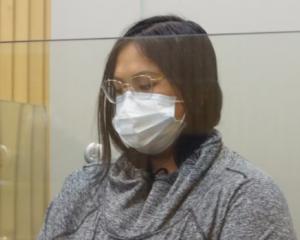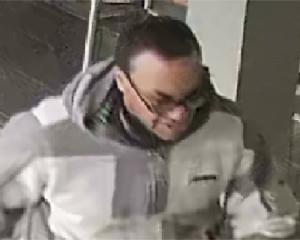
Mother-of-seven Kamila Mun (51), of Mairehau in Christchurch, was working for Alderson Poultry Transport Ltd on a farm contracted to Tegel Foods Ltd at Robinsons Rd, Broadfield, southwest of Christchurch on June 12, 2017 when she died after being hit by a forklift at about 11.30am.
WorkSafe investigated and charges were later laid.
After a hearing at Christchurch District Court last week, Judge Paul Kellar has now ordered Alderson Poultry Transport Ltd to pay $240,000 after it admitted failing to ensure the safety of an employee at work.
Alderson continues to support the Mun family, the court heard, and while it has made voluntary compensation payments, it will have to make further ongoing reparations.
Judge Kellar said the Mun family has suffered "very significant emotional harm" because of the death.
"For Mr Mun, the situation was made even worse because his wife died before his very eyes," the judge said.
"No award of reparation can ease the suffering of the Mun family."
The company employed two teams in Christchurch – with one team led by Mr Mun – to catch "broilers", or chickens intended for meat production.
Two days before the fatal accident, on June 10, 2017 at a staff meeting, Alderson's operations manager noted there was a shortage of chicken catchers for the following week and Mun volunteered to take on a shift working in her husband's team.
The normal hiring practice, which included practical training and going over of safety procedures, was skipped. The operations manager signed an induction document, despite Mun not being given any formal training or induction. She was expected to learn on the job from her husband and her fellow chicken catchers, the court heard.
The team started their shift at 12.30am on June 12 and were expected to catch 42,640 broilers over the next 11-and-a-half hours.
They were working in a 135m-long poultry shed at Robinsons Rd, with doors at either end and one side door, the court heard.
Catchers were not supposed to use the side door during catching operations where there can be up to 20,000 broilers in the shed.
Several times during the shift, Mun – who was wearing overalls with a single reflective strip and headgear - walked out of the hot, noisy, dusty, unhygienic and lowly-lit shed for fresh air or to use the toilet.
On the final occasion, she told her husband that she needed a drink.
As she went to leave the shed, the forklift driver, who was carrying a fully-loaded module out of the shed, struck and ran over Mun. She died at the scene from crush injuries.
The Mun family was unable to attend court last week after suffering another bereavement in the family.
Judge Kellar said he had spent many hours on the case and found that the most glaring controversial issue was how to calculate the "consequential loss".
WorkSafe prosecutor Dale La Hood said the sheer number of people emotionally harmed meant that any reparation should be "generous than parsimonious".
La Hood said there was no suggestion of an inability to pay, with insurance presumably able to cover any costs.
There had been a "clear failure" that day and improvements responsibly implemented since the tragedy should have been done earlier, he said.
Since the tragedy, Aldersons has installed sonar on the forklifts and detection equipment on the chicken catchers that "should significantly reduce the risk of injury", Judge Kellar said.
But he found it was "reasonably practicable" for Aldersons to have made sure that the chicken catchers were adequately separated from the forklift.
He found that there were steps that Aldersons "could reasonably have taken" to make sure that chicken catchers knew they could not leave the shed when working, and for the forklift driver to both be aware that people may be in his blind spot and to alert chicken catchers to the forklift's operation.
"Furthermore, the hazard was obvious. The forklift was operating in a dim light environment in which there is dust and noise. It is also expected that although they could take breaks, the workers would be tired as the work is hard, and the chicken catchers work long hours," he said in a judgment released to the Herald today.
Judge Kellar said personal protective equipment (PPE) "actually works" but there is little point if workers don't use it, and said the need to use PPE should have been the subject of ongoing training and monitoring.












